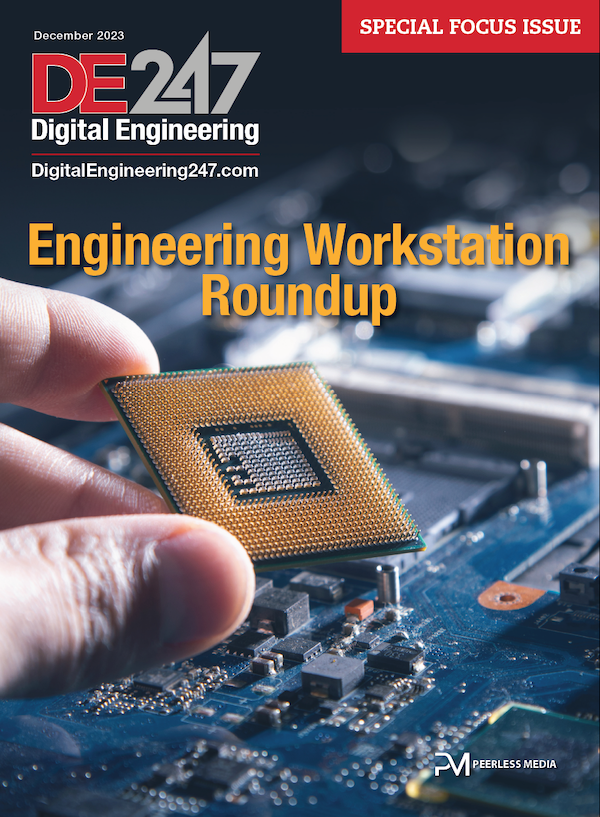Editor’s Pick: Altair Unveiled PBS Professional 10.0
Software adds green provisioning, enables on-demand computing, and offers administrator controls.
Latest News
December 30, 2008
By Anthony J. Lockwood
Dear Desktop Engineering Reader:
 Grid and cluster computing are kind of wonky topics that make the average user’s eyes glass over, the average IT administrator’s gruffness gruffer, and the average CFO’s blood pressure rise. The problems, respectively and in a nutshell, are performance, control, and bewildering software licensing plans. Nonetheless, all three recognize grid and cluster computing as key enabling technologies for engineering and design. Altair Engineering is out to bring rationality to using, running, and paying for grid and cluster computing.
Grid and cluster computing are kind of wonky topics that make the average user’s eyes glass over, the average IT administrator’s gruffness gruffer, and the average CFO’s blood pressure rise. The problems, respectively and in a nutshell, are performance, control, and bewildering software licensing plans. Nonetheless, all three recognize grid and cluster computing as key enabling technologies for engineering and design. Altair Engineering is out to bring rationality to using, running, and paying for grid and cluster computing.
Nothing is average about Altair’s PBS GridWorks approach to grid and cluster computing. GridWorks is a suite of products that enable on-demand computing (more on that in a moment). And at the heart of GridWorks is PBS Professional, just out in version 10. PBS Professional creates your enterprise-wide on-demand computing software environment for grid- and cluster-computing.
PBS Professional lets designers, engineers, scientists, and even financial analysts stay focused on their work by making job submission simple rather than stupefying. Personal PBS, a desktop-level application, takes this a step further and increases user productivity by making the job submission process about as turnkey as it can be.
For administrators, PBS Professional distributes workloads across cluster, SMP, and hybrid configurations efficiently. It scales to hundreds or even thousands of processors, manages a million jobs per day, detects system failures, and reschedules disrupted jobs automatically. But where it really shines is that it provides all sorts of controls for prioritizing jobs, eliminating interference between jobs, coping with time-zone variations, and on-the-fly fine-tuning or priority changes.
PBS Professional offers CFOs two noteworthy benefits. The first is what Altair calls “Green Provisioning.” Green Provisioning lets administrators schedule jobs to minimize electric power consumption and set minimum workload levels. It can automatically adjust the use of computing resources based on actual demand, and it can shut-down computing resources not being used.
The second CFO kicker is that Altair offers a software-licensing model that makes sense. PBS Professional users pay only for the actual use of their license. Your software license can float dynamically across your enterprise resources — even across borders — as your needs require. And it costs just $13.50 per concurrent license.
Grid and cluster computing are complex affairs. Their complexity combined with thoroughly opaque software licensing schemes have retarded their deployment and user acceptance. Altair uses the tagline"enabling on-demand computing” to describe GridWorks. What it means by this isthat GridWorks creates an environment that combines the features, flexibility,and power to make grid and cluster computing do what you need it to do. And itdoes so without the headaches for administrators and end users and without animpossible-to-understand pricing structure. Today’s Pick of the Week has more details on PBS Professional 10, including links to datasheets and a sign-up for a trial version. It’s makes good sense to me to give it a close inspection.
Thanks, pal. — Lockwood
Anthony J. Lockwood
Editor at Large, Desktop Engineering Magazine
Subscribe to our FREE magazine, FREE email newsletters or both!
Latest News
About the Author
Anthony J. Lockwood is Digital Engineering’s founding editor. He is now retired. Contact him via [email protected].
Follow DE





